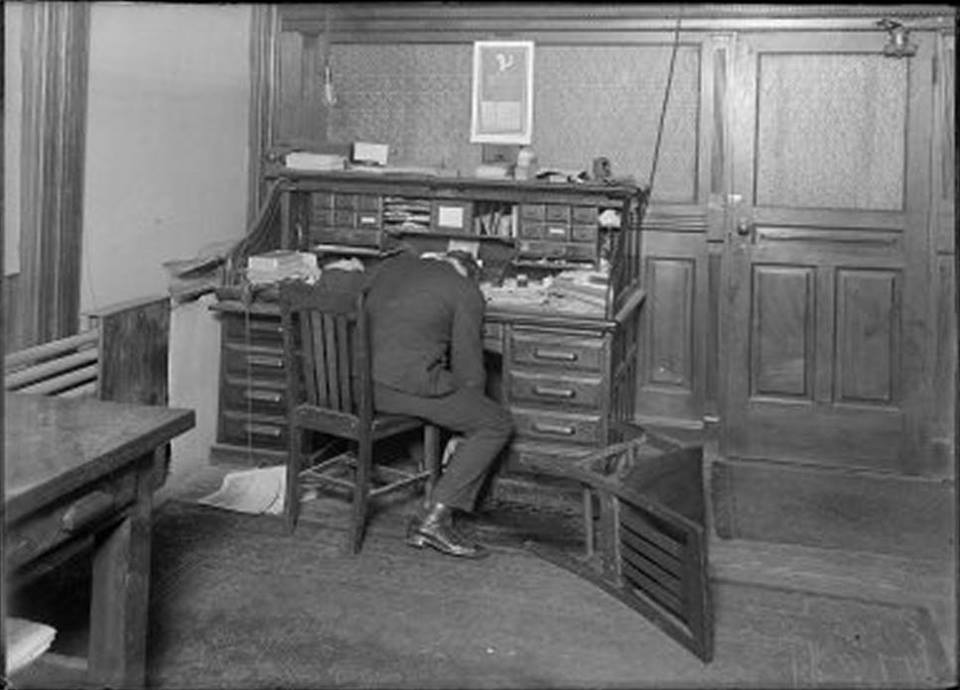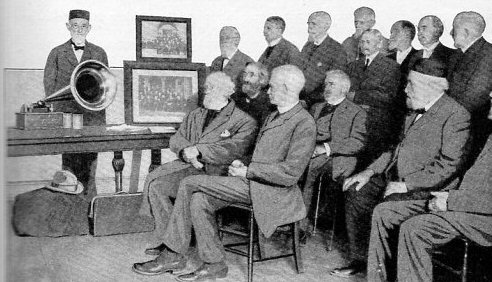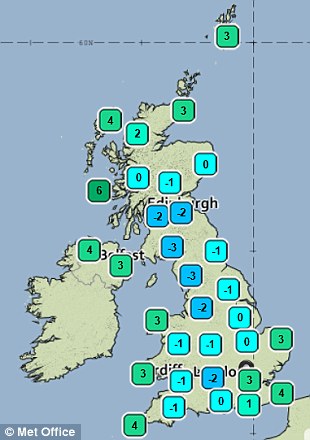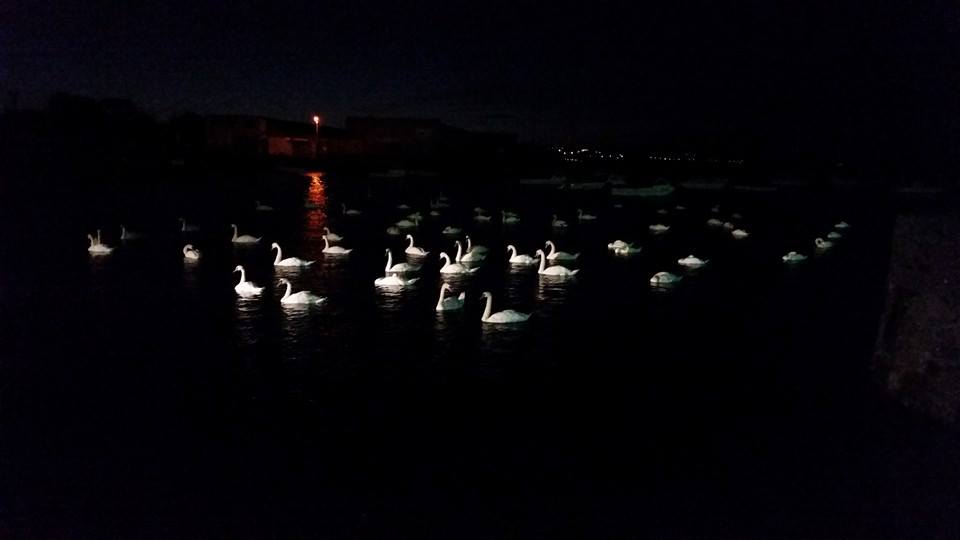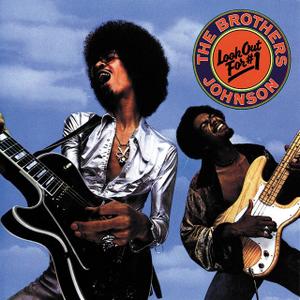A rare snap of the out of print pamphleteer, slumped over his escritoire in misery and despair. (Click to enlarge, click again to enlarge slightly more, print, put in a frame, and hang on a nail above your own escritoire.)
Monthly Archives: August 2014
Earworm Challenge
Diligent readers who commit to memory everything that I have ever written (that is, most of you) will recall that somewhere or other I bemoaned the fact that my brainpans are assailed by a persistent earworm. It is my fate to suffer, rattling around inside my bonce, day in day out, the strains of Merry Xmas (War Is Over) by Mr Lennon and Ms Ono, augmented by a choir of tinies. Why this is so, I cannot say. All I can assume is that I must have done something awful in a previous life and the gods have seen fit to torment me in a particularly cruel way.
Now, perhaps, there is a gleam of hope. For the past week or so, the Yuletide caterwaulings of the Beatle and the woman Cornelius Cardew threw out of his house have been replaced. But my new earworm is, it has to be said, somewhat challenging. I am now beset by Henry Cow’s Living In The Heart Of The Beast, which takes over a quarter of an hour to work its way through my poor cranium. This is indubitably more welcome, but I do ask myself why I can’t have a snappy snippet of pop music, which is what an earworm ought to be.
Incidentally, for those of you who care about such things, Living In The Heart Of The Beast was written (by Tim Hodgkinson) during the period of collaboration between Henry Cow and Slapp Happy. The music was given to Peter Blegvad, who was instructed to supply lyrics. He came up with something about chickens. “This won’t do at all.” pronounced Hodgkinson, who proceeded to write his own words, of a more Marxist-Leninist bent. Shortly afterwards, Blegvad was dismissed from the merged group for “flippancy”.
Cartography Pod
Now available from ResonanceFM, a tale from the last century …
Lefty Hip Magi
[Thanks again to R.]
There is a song on Hex Enduction Hour, the 1982 album by The Fall, entitled “Hip Priest”. It was a great favourite of the Phosphorescent Family, particularly of Old Pappy Phosph, who, in a certain light, from a certain angle, on certain days of the week, at certain times of day, bore a passing resemblance to Mark E. Smith, through a glass darkly.
One evening at a family singsong around the phosphorescent fireplace, Old Pappy struck up an a capella version of “Hip Priest”. Now it had not escaped the notice of tiny Mopsa Phosph that, when listening to a tape loop of distant pig gruntings, one of her sisters had keened and wailed that she wanted a pig of her own, and the very next day Old Pappy abducted one for her. (See The Family Pig for further details.) So Mopsa in turn keened and wailed that she wanted a hip priest, then burst into tears.
But as Old Pappy began to make reassuring cooing noises, and seemed on the verge of promising that he would abduct a hip priest for her, Old Ma Phosph put her foot down.
“We will have no Papists in this family compound!” she cried. In common with about two thirds of the Phosphorescent Family, Old Ma was a devout Zoroastrian. But Mopsa had a cunning beyond her years, and immediately revised her keening.
“I want a hip magus! I want a hip magus!” she screeched, until Old Pappy becalmed her by promising to stride out across the fields first thing in the morning and abduct one for her.
Then two of tiny Mopsa’s tiny sisters piped up, demanding that they be given hip magi too. Old Pappy, who remembered his Bible stories, thought it reasonable that magi should come in threes.
“Don’t you worry, girlies,” he said soothingly, “Tomorrow morning I will abduct three hip magi and bring them back to the compound. We can keep them in one of the outbuildings next to the phosphorescent fence.”
And Old Pappy was as good as his word.
Unfortunately, within a few days the Phosphorescent Family were much disconcerted by the activities of their hip magi, who did a lot of shouting and waving of banners and placards outwith the outbuilding. It soon became apparent that they were lefty hip magi, forever banging on about the iniquities of the Americans and the Zionists and prescribing infantile and witless solutions to social and economic issues. Old Ma Phosph, in particular, was none too pleased. She was, after all, a Fascist as well as a Zoroastrian.
“The hip magi will have to go,” she announced, “If they are not shouting and protesting they sit around in their armchairs reading Chomsky and John Pilge. Old Grampy Phosph must be turning in his grave to see such things happening within the family compound he built with his bare phosphorescent hands!”
So Old Pappy and Old Ma took Mopsa and her sisters aside, and explained to them, very patiently and tenderly, that the hip magi would have to go. There were tears, of course, and keening and wailing, but then Old Pappy had a brainwave.
“I tell you what, girlies! We can have a great deal of fun running the hip magi off our property, pursuing them across the fields with pitchforks and blazing torches and trapping them in Loopy Copse, where I have already dug a pit to chuck them into. And then, as a special treat, I will go and abduct Mark E. Smith of The Fall, and we will keep him in the outbuilding! You can feed him on the scraps left over by Baptiste the Family Pig. What do you think of that?”
And the tiny Phosphorescent girls whooped cries of delight and skipped and gambolled off across the lawn. Peace settled once more upon the Phosphorescent family compound, and the filthy magpie swooped down to perch on Old Ma Phosph’s pippybonnet.
BBC Weather
One of the BBC’s regular weather forecasters is Stav Danaos. This always sounds to me like a name from Game Of Thrones. One imagines Stav hanging out with, say, Stannis Baratheon or Daenerys Targaryen. That being so, it is somewhat puzzling that his weather forecasts do not consist simply of the words “winter is coming”, every day.
Filthy Magpie
[My thanks to R.]
In addition to the family pig, the Phosphorescent Family Compound was home to a filthy magpie. But while Baptiste the pig could rightly be described as a pet, the relationship between the family and the bird was less clear. Its nest was indubitably within the phosphorescent fence surrounding the property, and various Phosphs – particularly the tinier ones – liked to feed the magpie by scattering breadcrumbs and similar discarded food scraps near said nest, but there was no sense of ownership, as there is with a family pet. The ownership of Baptiste was of course a matter of dispute, as he had been abducted from a nearby farmer, but this was of little concern to the Phosphs, and the farmer happened to be a weedy, palsied farmer suffering from the ague and jellybrain, so he was in no fit state to try to regain his pig.
With the filthy magpie, there was always the chance that it might fly away one day and never return. Mordant Phosph, Old Pappy’s nephew by bigamous marriage to at least three of the septuplets, had at one time hatched a scheme to keep the magpie in a cage, but he was a butterfingers, and his attempts to construct a birdcage out of matchsticks, pipe-cleaners, and fusewire became the subject of a favourite family anecdote, often retailed around the fireplace of an evening when the wind outside howled and the phosphorescent fence glowed in the gloom.
I tried to find out how the filthy magpie came to nest with the Phosphorescent Family by leafing through bound volumes of The Hammer Of Christ. It was in this excellent journal that I had discovered the story of the family pig, so I thought it likely there would be a similar article about the magpie. But my searching was in vain, and the volumes criminally failed to include a cumulative index, which would be a boon to any scholar – binders please note! I then passed along the library shelves to consult the Bumper Encyclopaedia Of Distinctly Grubby Birds, but was disappointed to find no reference at all to a filthy magpie, nor indeed to any magpie at all.
My next port of call was the Pointy Town High Street offices of the Pristine Magpie Bureau. Obviously, the Phosph’s filthy magpie was the very antithesis of a pristine magpie, but I reasoned that the bird must – must! – once have been pristine before it became matted with filth, and that there may be a record of it in the Bureau’s extensive card index. There was not. This puzzled me, and I became ill-tempered, and was thrown out of the Bureau onto the street, whereupon I was splattered from above with the excreta of a bird. Whether or not it was a magpie I haven’t a clue, for I know nothing about ornithology whatsoever.
Above the mantelpiece in the Phosphorescent Family parlour was a large framed photograph, taken with a box camera, of the filthy magpie sitting on the head of Baptiste the family pig. The snap was taken by Mordant Phosph’s second or third wife, that is Flo or Pru, at a family picnic in the final days of the Tet Offensive. It must have been a fugitive moment, for magpies are not known to perch on the heads of pigs for any extended length of time. I may not know much about ornithology, but that I do know. The original photograph was blown up, over and over again, in the dark room of the Phosphorescent Family cellar, and though a certain amount of detail was necessarily lost in the repeated enlargements, one can still spot, in the lower left-hand corner, a speck of what might be regurgitated breadcrumb.
The question remains, of course : why was the magpie so filthy? We may never know the answer to that, though if anybody can track down a copy of Dobson’s pamphlet Half A Dozen Reasons Why Birds Sometimes Become Encrusted With Filth (out of print), we might be able to shed some light on the matter. Heaven help us, it might even be phosphorescent light!
Welsh Road Signs
According to a story in the “Funny Old World” column in the current issue of Private Eye, road signs in Wales are “mistranslated into Welsh on an enormously regular basis”. The example given is of a sign at a roundabout between Penarth and Cardiff. The English Cyclists dismount is given in Welsh as Llid y bledren dymchwelyd, or Bladder disease has returned.
At Night, In Ireland, Swans
Last spotted in Poland pondering the absence of bananas, my brother has moved on to Ireland where, in the tenebrous Wicklow gloom, he snapped these swans:
The Family Pig
The Phosphorescent Family had a pet pig. Its name was Baptiste, and it lived in a sty in the family compound. This compound was similar to the Kennedy Compound at Hyannisport, home of the Irish-American political dynasty, but in the case of the Phosphorescent compound it should be noted that the tall wire fence surrounding the property was, like the family, phosphorescent. The pig, by the way, was not.
Leafing through some old back numbers of The Hammer Of Christ the other day, I came upon an article recounting the tale of how the Phosphorescent Family obtained their pig. It was not a very interesting story, and I suspect it found its way into the magazine because the author was in possession of potentially explosive information about the editor. Never underestimate the amount of squalor, unseemliness, blackmail, and extortion in which even the most well-regarded periodicals wallow.
Anyway, the article has it that one day the patriarch of the Phosphorescent Family, Old Pappy Phosph, was leaning on a clump of gack in the compound, staring at the sky, lost in wonder, when he heard distant grunting. He rushed indoors to fetch his reel-to-reel tape recorder, for like everyone else in the family he was a keen tape-recordist of distant sounds, whether they were grunts or howls or gunfire or squelching. The Phosphorescent Family liked nothing better of an evening than to sit around splicing together tape-loops of various distant sounds and then playing them in unison. Over the years representatives from record companies and avant garde music festivals in Ulm had come bashing at the gates of the compound offering huge sums of money for these recordings, but they were always sent away empty-handed and with phosphorus burns in the very centre of their foreheads. The family had no interest in the stardom that would inevitably have swept them up had their tape-loops gone to the top of the hit parade.
On the evening that they listened to Old Pappy Phosph’s recording of distant pig grunting, it so happened that one of the tinier members of the family piped up with a query about the source of the sounds. Told it was a pig, she begged for a pig of her own. It was gently explained to her that a pig needs a sty to live in and there was no such sty in the compound.
“Then I thall build one mythelf, and thpread it with phothphorethent muck!” she keened, before bursting into tears.
And the very next day, she did, and so impressed was the family by her initiative and energy that Old Pappy Phosph strode out across the fields and abducted the very same pig whose gruntings now played on a continuous loop on the tape-recorder next to the tiny girl’s bed.
It was her cousin, Armand Phosph, a Francophile, who named the pig Baptiste.
As I said, it is not a particularly interesting tale, but I thought it worth sharing with you, if only because it gives us a first dim insight into the lives of the Phosphorescent Family. From a selfish point of view, it allowed me to make use – tangentially, but to my satisfaction – of the words “Readings have been taken from the soil. The pig has been chosen” which came to me in my dreams just before waking this morning. We have phosphorescent muck rather than soil, and the pig was abducted rather than chosen, but I have kept faith with my not yet quite awake brain, and that’s good enough for me, so it ought to be good enough for you.
From The Land Of Nod
In the moments before waking up this morning, the following words were rattling around inside my head:
Readings have been taken from the soil. The pig has been chosen.
Perhaps I can incorporate these sentences into my forthcoming study of the Phosphorescent Family.
Valkyrie
I Am A Willow Warbler
The willow warbler is a type of bird which warbles in willows. I am not a bird – obviously! – but I, too, have warbled in willows. It is a simple enough matter. What you do is locate a clump of willows, then wander into the midst of them, and start warbling. You can then describe yourself as a willow warbler, perhaps when, at a sophisticated cocktail party, leaning insouciantly against a mantelpiece, you are approached by a fellow guest who asks you what you do. “I am a willow warbler”, you can say, truthfully.
Among the various definitions given for warble in the OED, the one I find particularly helpful is “To twitter, as a young bird; to make uncertain attempts at singing”. This is my kind of warbling, because, frankly, I cannot sing for toffee. But there is nothing to stop me making “uncertain attempts” at singing, in the midst of a clump of willows, whenever the mood takes me. And take me it often does!, to the point of mania.
I have a varied repertoire of songs which I warble – or sing uncertainly – on my willowy jaunts. Land Of Ladies by the Brothers Johnson, Vienna by Ultravox, Boom Bang-A-Bang by Lulu, and Nunc dimittis servum tuum by The Toofles are among my favourites. I struggle with the words – and tunes – of all of them, but that is par for the course with warbling. Occasionally I am shot at by farmers.
The Truncheon Brothers
The Truncheon Brothers, Tad and Tod, were an unacclaimed act from the golden age of variety theatre. Both dressed as middle-ranking police officers, they would bound creakily on to the stage – they were of advancing years – Tad from the right and Tod from the left or, as it might be, Tod from the right and Tad from the left, and proceed to bludgeon each other about the head with their truncheons. These were lead-weighted heavy rubber truncheons as deployed by real coppers. One or other of them, Tad or Tod, would collapse unconscious to the floor first, at which point the still-conscious-but-decidedly-woozy one, Tod or Tad, would break into song, usually slurring the words due to the disorientation occasioned by the several blows to the head received. The song itself never varied. A third, non-performing brother, Gilliblat, wrote both the words and the music. The lyrics were as follows:
I bashed my brother on the head
But don’t you worry, he’s not dead
We will be back tomorrow night
For another truncheon fight
We’re the Truncheon Brothers, Tad and Tod
And we bathe in the blood of the Lamb of God
We take our baths offstage of course
Now please cheer us until you are hoarse
We’ll pass a cap round for your cash
Then I’ll give Tod [or it might be Tad] a final bash
The cap, passed around the audience by Gilliblat, rarely had any cash in it by the time it came back to him, though the Truncheon Brothers never wanted for buttons and corks and scrunched-up bits of paper.
Source : Some Truly Awful Acts Who Appeared At Bodger’s Spinney Variety Theatre, 1880-1910 by Dobson (out of print).
Decayed, But …
Ruthie Bosch (who designed the cover of By Aerostat To Hooting Yard) is in regular receipt, from a Canadian correspondent, of Victorian newspaper and magazine clippings. These are primarily illustrations, but bits and scraps of surrounding text are often still attached. Ruthie tells me that one recent acquisition included the splendid phrase
Now as I belong to a “decayed”, though not yet phosphorescent family
I think I ought to do something with that.
Sports And Games
A letter from Johnny Leavesley in The Spectator explains
the old distinction between a sport and a game. A sport is something a gentleman can do while smoking. Hence fishing, shooting and even golf are sports, but foopball and tennis are games

